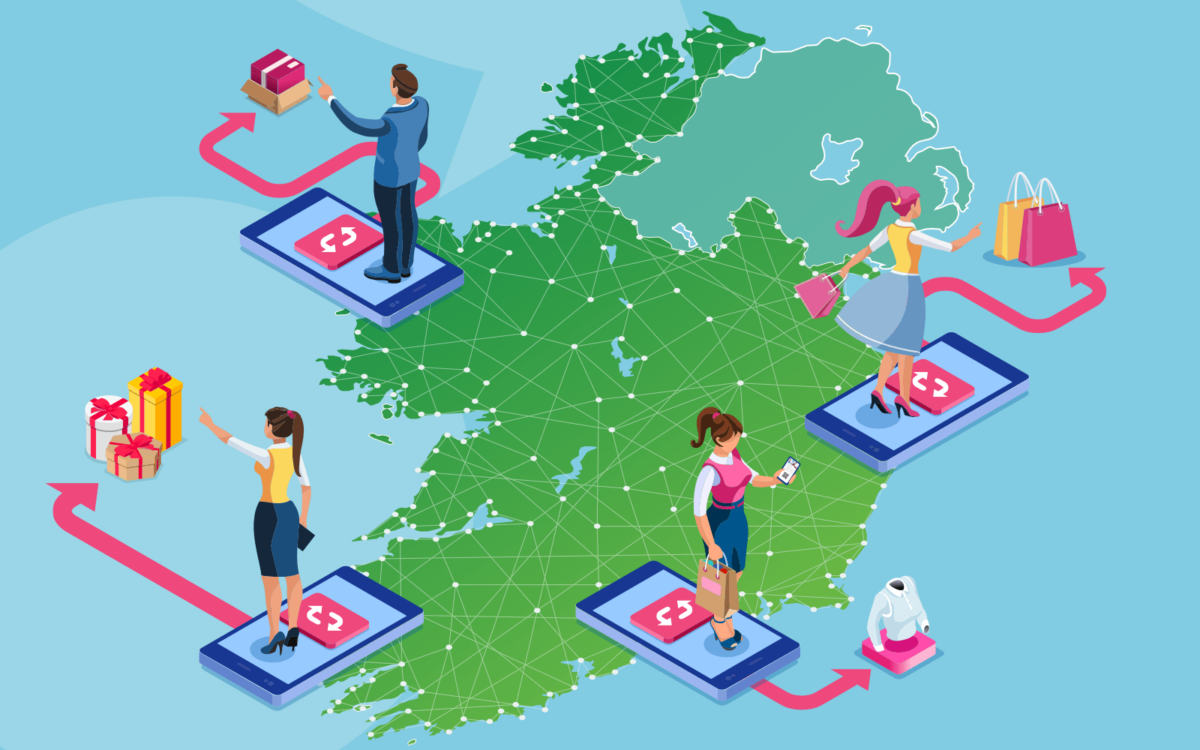
E-commerce presents consumers with quite literally a world of choice and great convenience.
Making that happen is no small undertaking for retailers.
Beyond building an attractive online presence, they need to establish the infrastructure capable of fulfilling orders and managing the customer experience.
One of the biggest challenges they face is undoubtedly in relation to returns, particularly the financial, logistical and environmental impacts involved in dealing with a growing volume of unwanted goods sent back by shoppers.
When you consider that returned goods are now worth €668 billion – or 14.5 per cent of the €4.6 trillion in global online sales each year – it’s easy to see why getting the issue of returns right has become a critical factor in online retail success.
A good returns process is generally thought to be one which is easy enough for consumers so as to encourage repeat purchases but not so easy that it absorbs a disproportionate amount of brands’ time and resources.
It is why drop2shop is increasingly relied upon by many hundreds of household name retailers based in Ireland, the UK and further afield.
They understand that certain categories of items, such as clothing and footwear, generate large numbers of returns.
One study published earlier this year found that one-quarter of clothing ordered online was subsequently returned.
Some commentators have remarked how that is being partially driven by individuals buying multiple garments to try in the comfort of their own home just as they might have done in the changing rooms of high street stores in the past.
In response, some brands have introduced tiered charges to discourage customers who frequently return products.
The idea of returns fees being a deterrent to further purchases has also been highlighted by the British Fashion Council.
In addition, the Council found that the returns process contributed an estimated 750,000 tonnes of C02 emissions during 2022.
If, as the same organisation concluded, high volumes of goods being sent back means that free returns will soon be a thing of the past, the answer seems to lie in a system which is simple and cost-effective for shoppers and shippers alike.
drop2shop provides retailers with just that.
It is a truly nationwide network, allowing consumers to collect and return purchases via more than 500 premises, including those of the health and beauty retailer Boots and some of Ireland’s most popular convenience stores, such as Eurospar, Spar, Mace, XL and Londis, which are operated by BWG.
drop2shop is fast and paperless, using unique QR codes rather than the complication of issuing and affixing labels to returns.
drop2shop doesn’t have its own dedicated vans or trucks, relying instead on the same BWG vehicles which bring stock to participating stores.
The BWG fleet includes the largest contingent of CNG (compressed natural gas) powered trucks in operation in Ireland.
As a result, drop2shop has been able to reduce the expected carbon footprint for our services by more than one million road miles and 150,000 tonnes of CO2 emissions over the last year.
In short, it’s convenient and easy on shoppers’ consciences too – qualities which many retailers have discovered are important in explaining why returns fees are a perfectly valid part of online shopping.
drop2shop’s speed in ensuring returns are back with brands, enabling decisions about whether they should be resold and the processing of refunds has also been instrumental in our handling an ever greater share of online orders heading to Ireland.